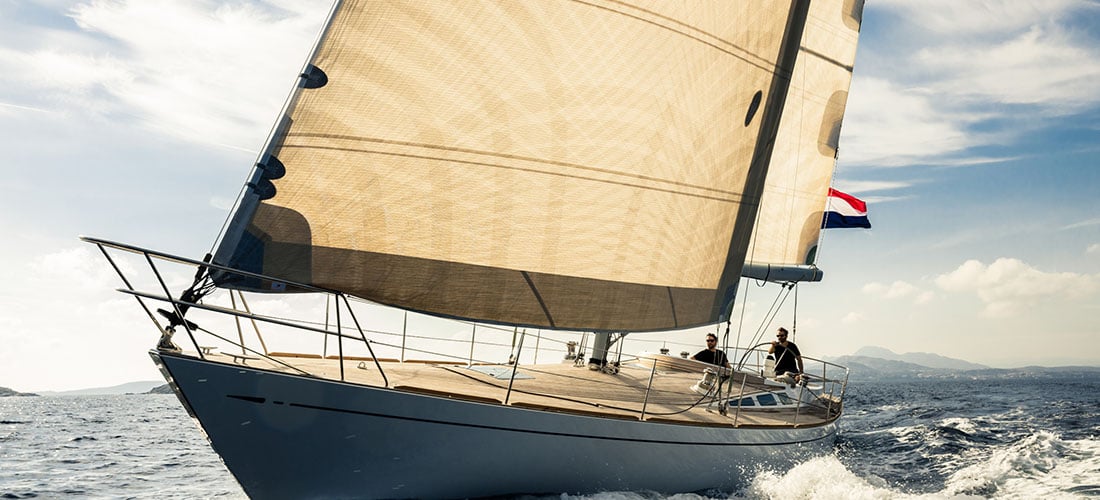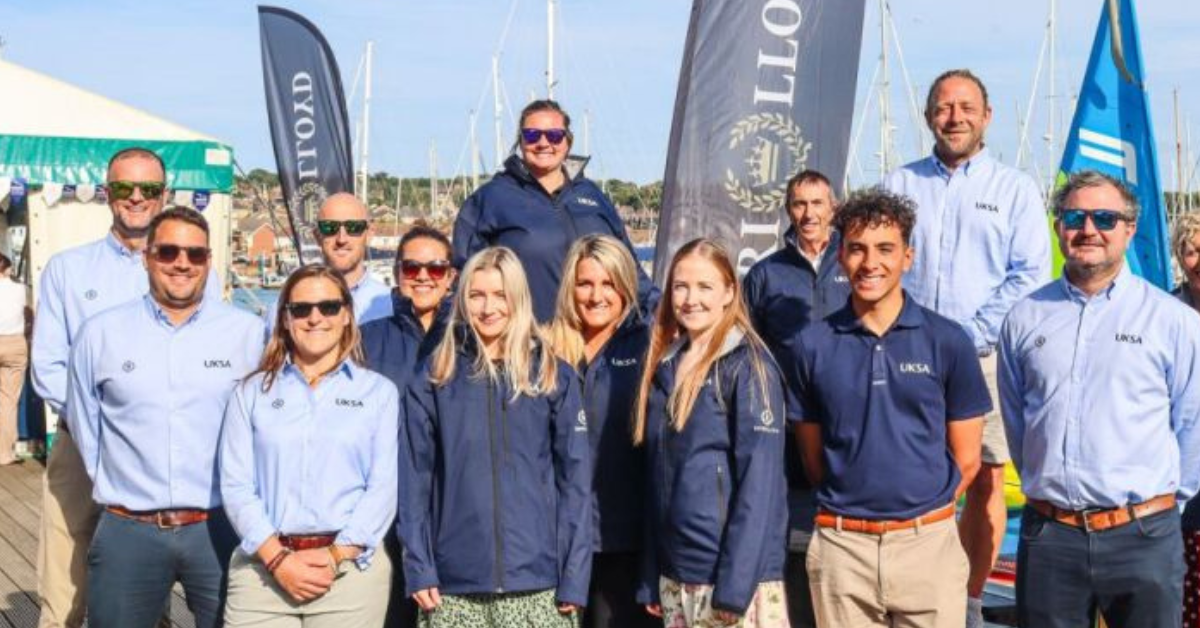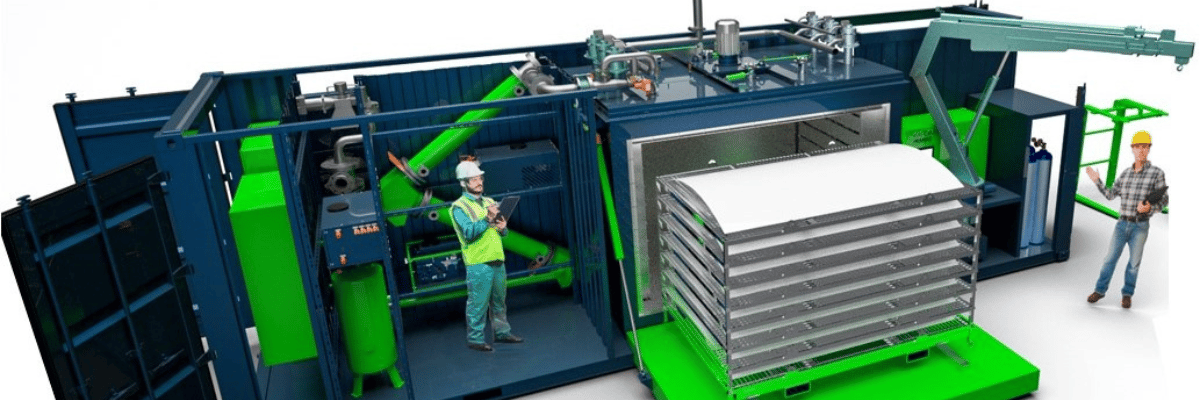Legends reborn, a contributor to the Circular Economy
 Peter Franklin
Peter Franklin
Keeping raw materials and products in productive loops for as long as possible is one very effective way of enhancing what has become known as the Circular Economy. The clear aim is to reduce unnecessary waste, and to make our world less dependent on finite resource reserves.
The Sustainability Foundation started by solo long-distance yachtswoman Ellen MacArthur, has estimated that the global economy could benefit to the tune of $1 trillion, by successfully making this circular transition, and moving away from the traditional 'take, make and waste' economy.
More and more industrial sectors are realising, that reuse or remanufacturing of products not only preserves their original material value, but also exposes the future of the world to less energy and water risks than traditional manufacture or recycling.
Good examples illustrating the positive effect of secondary use, (as opposed to recycling) have been revealed in recent studies. For instance, a reused iPhone retains 48% of its original value, compared with 0.24% for the value of its recycled components. Less dramatic but still significant, is the example of a car, which retains 5.3% of its value when reused, and only 1.5% from recycling.
Reviving old yachts, why not?
Just as with cars, quite a few boats that were built several decades ago have become classics in their own right, and those built from glass fibre (GRP) are proving to be very difficult and uneconomical to recycle, in fact virtually indestructible!
As has been pointed out during several Sustainability forums held at METSTRADE, the leisure marine industry is still a long way behind the automotive business when it comes to offering recycling solutions that are practical and cost effective. So, keeping boats in use for much longer by effectively ‘upcycling’ them, is a useful way of avoiding costly waste, by reaching out to new owners with nostalgic memories of ‘the good old days.’
1970’s Swan 48… sailing into the future
Peter Melcher of Dutch boat building yard Younique Yachts says, “there is good news for people with fond memories of wonderful sailing vacations when they were kids. The yachts of days gone-by are still here. They may need some work, a lot of tender love and care, and more than one clever design idea, but their spirit and beauty is still there.”
“The elegant Swan 48 that our yard has recently finished reconstructing, proves that old legends deserve a new lease of life, and that their appeal is timeless,” he continued.
“The concept that Younique calls ‘Legends Reborn’ undoubtedly offers a sustainable solution and we believe that extending the life of a grand old yacht is much better than leaving it to rot in a boat graveyard somewhere, or being buried in the ground for future generations to deal with”
“We think it’s sad to see beauty waste away, but also we want to do our part for a sustainable future,” said Melchers. “At Younique Yachts we try to add as little as possible to the ever-growing scrapheap, and we replace the (certified) wood that we use by planting new trees in designated areas in the Netherlands.”
History of the Swan 48
The Swan 48 was the 6th design developed for Nautor of Finland. She was designed by Olin Stephens to rate under the I.O.R. Rule, and destined to be a great cruising yacht. The model was introduced in 1971, and 46 boats were built during the production run that ended in 1975.
The boat has an overall length of 47’-11” (14.4m) a beam of 13’-7” (4.0m) a draft of 7’-10” (2.35m) displacing 36,000 lbs (16,330kg) with a sail area of 1,059 sq ft. (98 m2.). This particular boat was built in 1972.
The project
Peter Melcher and Egbert Wattel from Younique Yachts, have been jointly instrumental in completing this very special project. They said, “we work on the basis of a deep understanding of what customers want, using this information to design, build and rebuild yachts. The yard’s measure of success is when the yachts perform, look and feel exactly the way their owners envisioned them to be.”
“But an extra challenge was to consider and respect what the craftsmen at the original yard would have done,” said Melcher, “those guys could really build boats! They considered every tiny detail and so did we, but we did it with the advantage of today’s technology and materials.”
The yacht was completely stripped back to a bare hull, a new teak deck and flush windows fitted. The complete deck plan was re-engineered with a longer than standard carbon rig fitted, and lots of the original construction members were strengthened with the use of modern composite materials.
The entire hull was stiffened with carbon sheets; the interior was redesigned and fitted with furniture made from Corian and hung from the bulkheads giving the impression that it's floating free! New system installations, engine and NavComs finished off the job to the owner’s complete satisfaction.
Next up, a Feadship
Younique Yachts are now engaged in another "Legends Reborn" complete reconstruction project, this time with a 1939 built, 15 metre Feadship motor yacht, originally from the renowned De Vries yard, and retaining her launch name of ‘Zephyr’.
The project again involves completely stripping out the hull and rebuilding the interior, fitting new teak decks, installing new solid mahogany window frames, and redrawing the lines of the original wooden pilot house, to improve the profile of the yacht before totally reconstructing her above deck level.
Share your stories on leisure marine industry with us
Do you have an innovation, research results or an other interesting topic you would like to share with the leisure marine equipment industry? The METSTRADE website and social media channels are a great platform to showcase your stories! Let us know via metstrade@rai.nl
Are you a METSTRADE exhibitor?
Make sure you add your latest press releases to your Company Profile in the Exhibitor Portal for free exposure.


